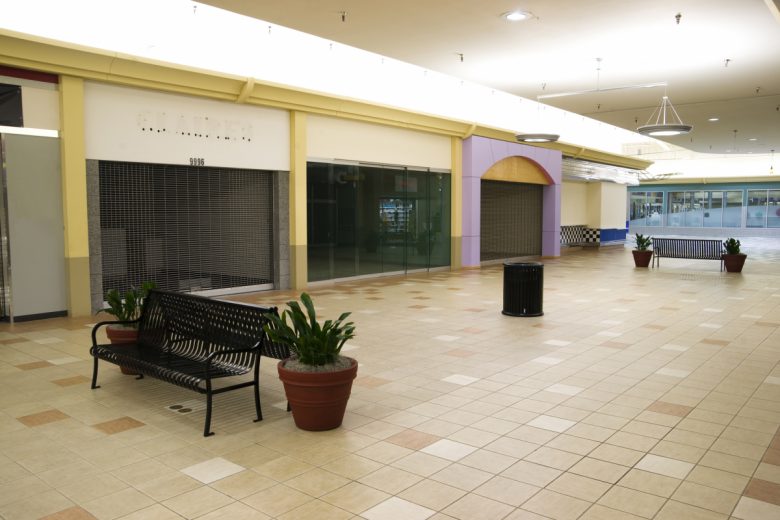A recession is a global phenomenon that affects every industry in some way. This can be hard for businesses to plan for, as you must be prepared for all what-ifs in your business model and finances. Even if you aren’t directly affected by the recession, it’s still important to keep an eye on how it affects other industries and what it means for them (and their customers).
There are many ways that recessions affect small businesses. But some industries see a greater impact than others. While some businesses like Microsoft, Uber, and Burger King started during a recession and went on to become multi-billion dollar companies, many wind up shutting down.
Here are seven businesses that are particularly susceptible to poor performance during a recession.
1. Retail Industry
Mistakes occur when a retailer does not know how to pivot to the changes a recession brings. Pivoting involves focusing more on e-commerce and using small influencers instead of big marketing tactics.
Retailers were hit big in 2008-2009, which caused thousands of locations to close, from luxury to mom-and-pop stores. This eventually caused retailers to file for bankruptcy and liquidate their stores. While retailers may sell products that do well during a recession, the retail industry as a whole has suffered during the past two global recessions.
Retailers are notorious for having high fixed costs and high inventory: a retailer has to pay rent, utilities, and insurance on the store location regardless of how much business they are doing or whether they have any customers. They also have to carry a lot of inventory because it is difficult to predict what products will sell well during a recession. This means that even if sales go down, retailers still need to pay for the same amount of inventory as before—which makes it hard for them to reduce costs in response to lower demand (or increased revenue).
Retailers also have significant costs associated with customer service due to their large number of employees working retail jobs during an economic downturn (when fewer people want new clothes or electronics). This may lead to letting employees go and cutting down hours to try to stay in business and cut costs.
2. Luxury Brands
Luxury brands are often seen as status symbols. They cost more than other products in the same category, so only people with money or who see themselves as the wealthy can afford them. Luxury brands also rely on high-end marketing, which can be expensive for companies and consumers.
When times are good, and money is easy to come by, it may seem counterintuitive that luxury goods would struggle in a recession. However, during bad economic times, people tend to focus more on their needs than wants; they become less likely to spend money on frivolous items like designer handbags or expensive watches. Luxury brands often suffer because they have a high cost of entry—a product might be worth buying only if someone else sees that person using it or wearing it (this idea is called conspicuous consumption).
3. Restaurants (non-fast food)
When the economy is doing poorly, we tend to tighten our budgets and cut back on spending. This means eating out becomes less frequent. Restaurants are already expensive businesses because of their high fixed costs, marketing costs, and labor costs, not to mention rent payments.
These things don’t change during a recession, though many people have less money in their wallets and may opt for cheaper options such as fast food or home-cooked meals instead of eating. Choosing between cheaper or expensive options is easy if you have a big family. The more affordable option will always win.
During the first recession in 2008-2009, 4000 restaurants closed, according to market research company NPD reports. Independent restaurants declined by 2%, and fine dining restaurants declined by 7%.
4. New Auto Sales
You may be fretting about a downturn if you’re in the car industry. People are not buying new cars because they don’t have the money to spend on expensive vehicles.
In the previous recession (2008-2009), new auto sales declined by 40%, and employment fell by over 45%.
While this may seem counterintuitive given how much automakers promote their products as being “in style” or whatever other buzzword they use these days, there are a couple of reasons why this happens:
- People want something cheaper and more practical (like used cars). A vehicle with fewer miles can save thousands of dollars over time—and even more, if gas prices go up again! With so much uncertainty in our economy, nobody wants to spend their money frivolously when they could put it towards savings instead.
- Credit may not be good enough to buy a new car. If someone’s credit has taken a hit because of the recession, they will be less likely to qualify for a car.
- New cars lose value over time, so they are no longer an asset.
However, as new auto sales decline, oil and gas are among the top industries that thrive because of the high prices.
5. Hotels and other travel-related businesses
Travel is a discretionary expense, and people tend to reduce travel during recessions. Hotels and airlines are both hit hard when the economy slows down. Who wants to spend $300 on a hotel room when that can go towards a critical bill? People will most likely choose their priorities over fun unless they have a high-paying job.
This means that many hotels will be struggling to fill their rooms, even if they already have available capacity. If a hotel’s occupancy rate drops, it can lose money—even if it charges its normal rates.
Conclusion
As you can see, businesses that do poorly during a recession are not always the ones you expect. Although there are things that business can do increase sales during a recession, retailers and restaurants, airlines, and hotels tend to struggle. Automobile dealerships suffer when consumers cannot afford new cars, but oil companies can thrive as prices rise.











Pingback: How Strong Companies Survive Recession: 7 Strategies You Must Incorporate in Your Business Today - StartUp Mindset
Pingback: Everything You Wanted to Know About Online Enterprise and Were Afraid To Ask ·
Pingback: 5 Products That Sell the Best During a Recession - StartUp Mindset